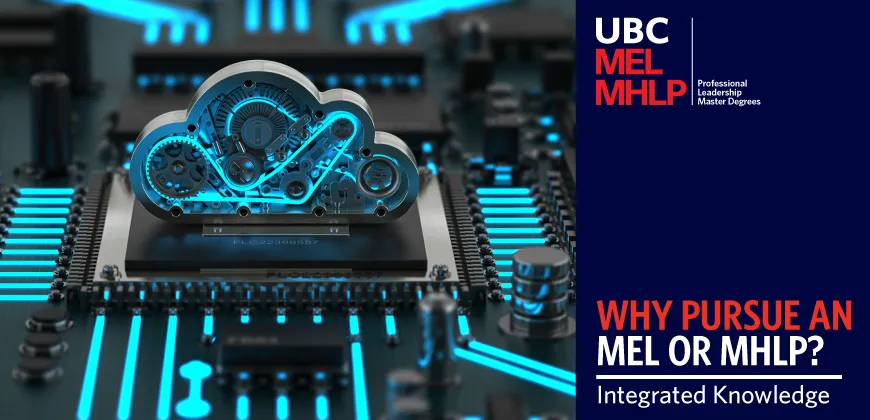Today's leaders need integrated perspectives

Complex challenges require innovative solutions – and innovative solutions require integrated and cross-disciplinary perspectives. It's not enough for today's leaders to have subject matter expertise in a specific area – they need a holistic understanding of their industry and an awareness of the business and social context in which it operates.
Gaining this integrated perspective is not always easy or straightforward. Traditional undergraduate and graduate programs tend to focus on one particular area of focus, and many jobs stick to a narrow lane of expertise. In our Program Spotlight Series, the directors and instructors of the Master of Engineering Leadership (MEL) and Master of Health Leadership and Policy (MHLP) programs identify this niche focus as a problem, arguing that what we really need are leaders with a broader and more integrated understanding of their sector. Consider, for instance, the building industry. Today’s buildings must meet stringent codes, regulations and energy-reduction targets, while also ensuring their occupants’ well-being. Experts from a wide range of disciplines need to come together to create buildings that can achieve these complex and often competing goals within tight budgets.
As Steve Rogak, former co-director of the MEL in High Performance Buildings program, says, “When you can bridge the traditional silos between the professions, you’re able to find solutions that skillfully navigate the trade-offs and complexities.”
Or take the building of a ship – a vessel with the complex infrastructure of a small city that needs to be able to traverse the globe and withstand extreme weather conditions. “The physics of shipbuilding and the engineering calculations are the easy part,” says Chris McKesson, instructor in the MEL in Naval Architecture and Marine Engineering.
“What’s hard is integrating those systems. That’s why you need to train engineers to be able to work within that complexity and understand the far-reaching repercussions of any decision. You need people who have a big-picture understanding of the integrated system, a working technical knowledge of multiple disciplines and the ability to synthesize all of that information and make decisions.”
An integrated understanding of an industry sector is essential when overseeing large projects, something that comes with the territory as you move into positions of greater responsibility. Although you’ll likely come to your leadership role with technical expertise in one area, you need to understand the interconnections of the system as a whole to be truly effective.
As Greg Lawrence, an instructor in the MEL in Integrated Water Management states, “Our program aims to provide that broader, integrated understanding of the many technical disciplines you need to know when managing and leading large and complex projects.”
In addition to being able to integrate knowledge across an industry sector, MEL and MHLP program directors say there’s a need for leaders who combine their technical expertise with an understanding of business and strategy. Alison Phinney, a professor and instructor in the MHLP in Seniors Care, believes that innovative solutions to the most pressing health-care challenges will increasingly come from professionals who have both clinical and business skills.
“We need to rethink the system as a whole to ensure our models of care are effective, integrated and co-ordinated. Achieving this latter goal will require professionals grounded in clinical practice who also have the business knowledge and leadership skills to think critically about the current challenges and envision new possibilities.” Or as Sergio Berretta, an instructor in the MEL in Sustainable Process Engineering, says, “the most innovative ideas will not make a difference if they are not implemented. This underlines the importance of ensuring people have not only the in-depth technical knowledge needed to come up with new ways of doing things, but that they also have the business and leadership skills to make a business case, understand the practical issues of deployment and scaling-up, and inspire others to reach for the same ambitious goals.”
Programs like the MEL and MHLP enable high-performing professionals to broaden their technical understanding of a specific industry sector while also gaining foundational business and leadership knowledge. This dual focus ensures our graduates re-enter the workforce with integrated cross-disciplinary perspectives – positioning them to take the lead in developing the innovative solutions our world needs. With their combination of technical and business education, the MEL and MHLP programs are uniquely tailored for today’s professionals. To learn more about how these degrees can help you develop the integrated perspective to accelerate your career, see our articles Technical expertise is fundamental to leadership and Speaking the language of business is fundamental to leadership.


